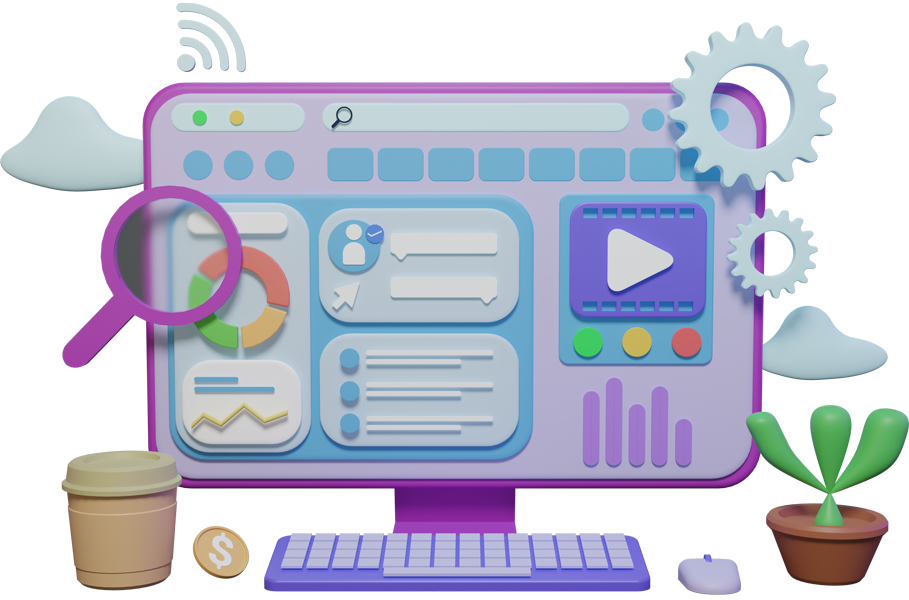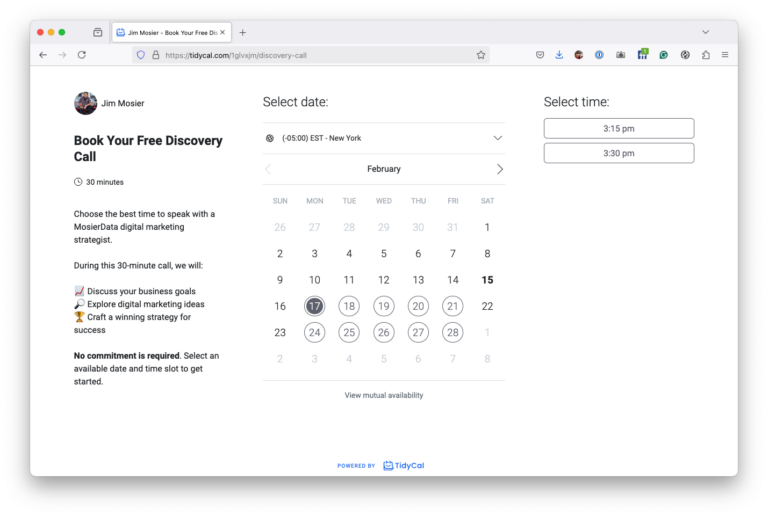When it comes to optimizing your digital advertising campaigns, choosing the right PPC conversion tracking tools is key. These tools, like Google Ads and Facebook Pixel, provide deep insights into user behavior, allowing you to refine your targeting and boost your ROI. With options like Microsoft Advertising and LinkedIn, you’re equipped to track conversions across diverse platforms. But what’s the real advantage of integrating third-party analytics and CRM systems into your strategy?
When it comes to Google Ads Conversion Tracking, understanding its functionality is essential for optimizing your PPC campaigns. You’ll find that this tool allows you to measure actions users take after interacting with your ads, such as purchases, sign-ups, or downloads. By setting up conversion tracking, you can identify which ads, keywords, and campaigns are driving valuable customer actions.
To get started, simply create a conversion action in your Google Ads account and add a snippet of code, known as a conversion tag, to your website. This tag captures data on user interactions, enabling you to fine-tune your ads for maximum impact. With this information, you’ll make smarter budget decisions, allocate resources efficiently, and ultimately, enhance your return on investment.
Although many tools can track conversions, Facebook Pixel stands out by offering deep insights into user behavior on your website. It helps you understand how users are interacting with your ads and what actions they take once they land on your pages. By installing a simple code snippet on your site, you can track conversions, optimize your ads, and build targeted audiences for future campaigns.
You’ll gain valuable insights into which devices your visitors use, how long they stay, and what content engages them most. This data empowers you to refine your marketing strategies and create more effective campaigns. Plus, Facebook Pixel integrates seamlessly with the Facebook Ads Manager, allowing you to leverage its powerful analytics tools for precise audience targeting and better ROI.
Someone looking to boost their ad campaign’s effectiveness might consider Microsoft Advertising Conversion Tracking. It’s an essential tool that helps you understand how users interact with your ads on Bing and partner sites. By setting up conversion goals, you can track specific actions like purchases, sign-ups, or downloads, giving you a clear picture of what’s working.
You’ll gain insights into which keywords and ads are driving conversions, allowing you to optimize your budget and strategy. Microsoft Advertising also provides a Universal Event Tracking (UET) tag, making it easy to collect data across multiple campaigns and platforms. This tool helps you refine your targeting, improve your return on investment, and ultimately make more informed decisions to maximize your advertising efforts.
Leveraging LinkedIn Conversion Tracking can substantially enhance the effectiveness of your advertising campaigns on the platform. You’ll gain valuable insights into how your ads are performing, allowing you to fine-tune strategies and maximize ROI.
With LinkedIn’s tracking pixel, you can monitor conversions, such as form submissions or content downloads, directly linked to your ads. It’s all about understanding user interactions and outcomes.
Set up is straightforward; install the pixel on your website and define conversion actions in LinkedIn’s Campaign Manager. This tool provides real-time data, helping you identify which ads drive the most engagement.
When it comes to enhancing your Twitter advertising campaigns, a detailed understanding of Twitter Conversion Tracking is essential. This tool allows you to measure the effectiveness of your ads by tracking actions users take after interacting with your tweets. You can monitor conversions like website visits, sign-ups, or purchases, providing insights into which ads drive the most engagement.
By installing the Twitter pixel on your site, you can track these conversions seamlessly. Use this data to refine your targeting, optimize ad spend, and improve overall ad performance. You’ll gain a clearer picture of your ROI and can make informed decisions to maximize campaign success.
Don’t miss out on the opportunity to boost your Twitter marketing strategy with precise conversion tracking!
A multitude of third-party analytics platforms can greatly enhance your PPC conversion tracking efforts. They offer specialized features that go beyond standard tracking tools. By leveraging these platforms, you can gain deeper insights into user behavior and campaign performance. They often provide customizable dashboards, letting you tailor reports to your specific needs.
These platforms can help you identify trends and patterns, ensuring your ad spend drives maximum results. Many also offer real-time data, allowing you to adjust campaigns on-the-fly based on up-to-the-minute performance metrics. This adaptability is pivotal for optimizing conversion rates and improving ROI.
Choose a platform that aligns with your goals and offers robust support, ensuring seamless integration with your existing tools. Your PPC strategy will benefit immensely from these advanced insights.
Seamlessly integrating PPC conversion tracking tools with CRM systems empowers you to create a more cohesive marketing strategy. You’ll have the ability to connect ad interactions directly with customer data, giving insights into customer journeys and behavior. By synchronizing these systems, you can track leads from their first click to conversion, ensuring that no data slips through the cracks. This integration helps you personalize marketing efforts, improving customer engagement and boosting ROI.
Additionally, it allows you to automate tasks like follow-ups and reporting, saving you time and resources. You can easily identify which campaigns are truly driving sales and adjust strategies in real time. Ultimately, syncing PPC tools with your CRM provides an all-encompassing view of your marketing efforts and enhances decision-making.
PPC conversion tracking tools don’t directly impact SEO, but they provide valuable insights into user behavior that can enhance your SEO strategies.
By analyzing which keywords and ads convert the best, you can adjust your SEO efforts to target high-performing search terms. You’ll understand your audience better and optimize your content to align with their needs.
These tools offer actionable data that can improve your site’s visibility and drive more organic traffic.
When you’re considering PPC tracking tools, costs can vary widely. Basic plans might start around $10 per month, while advanced features could push costs to several hundred dollars monthly.
Some tools offer tiered pricing based on your ad spend or the features you need. Be sure to factor in any potential hidden fees, like setup or support costs. It’s essential to evaluate your budget against the tool’s benefits to ascertain you’re getting value.
You’re right to wonder about data security with PPC tracking tools. These tools prioritize protecting your information with robust encryption and secure data storage practices.
They often comply with data protection regulations like GDPR and CCPA, ensuring your data’s handled responsibly. Always check if the tool offers features like two-factor authentication and regular security updates. By staying informed, you can confidently use these tools without compromising your data’s safety.
You’re wondering if PPC conversion tracking tools can work offline. Typically, they’re designed for online use, tracking user interactions over the internet.
However, some tools offer offline conversion tracking features. You can upload offline data, like phone calls or in-store purchases, and sync it with your online campaigns. This way, you’ll get a thorough view of your conversions. Just guarantee you’re using a tool that supports such integration.
When using PPC tracking tools, you’ve got to ponder legal aspects like data privacy laws. Make sure you comply with regulations such as GDPR or CCPA, which govern how you collect and store user data.
Inform users about data collection practices through privacy policies and obtain consent when necessary. It’s essential to stay updated on legal changes to avoid hefty fines and protect your brand’s reputation. Don’t overlook this important step.
You’ve got a wealth of PPC conversion tracking tools at your disposal, each offering unique insights to fine-tune your ad strategies. Google Ads, Facebook Pixel, Microsoft Advertising, and LinkedIn Conversion Tracking help you understand user behavior like never before. Don’t overlook Twitter and third-party analytics platforms for even deeper customization. By integrating with CRM systems, you’re empowered to make data-driven decisions that boost your ROI and transform your PPC campaigns into powerful success stories.

